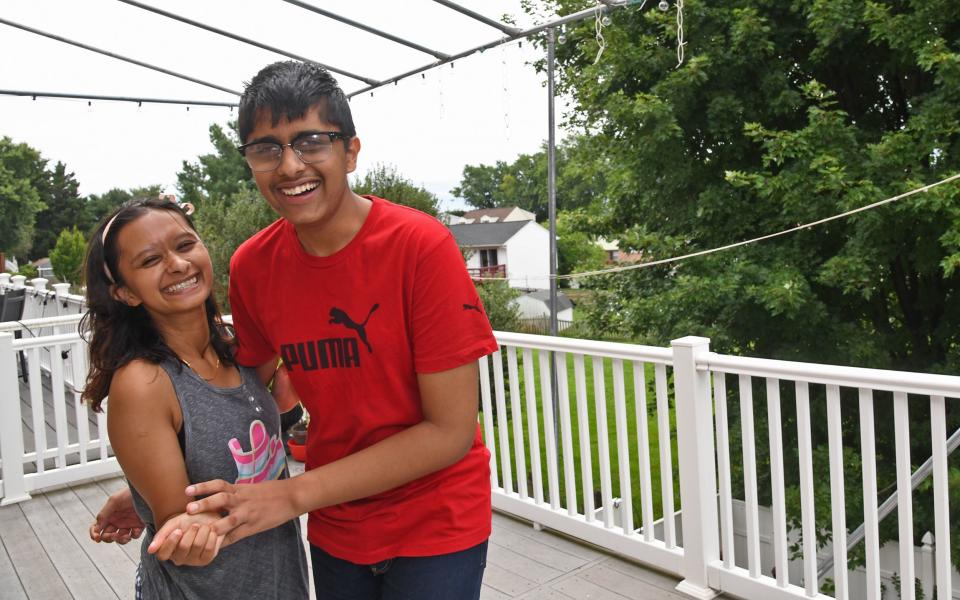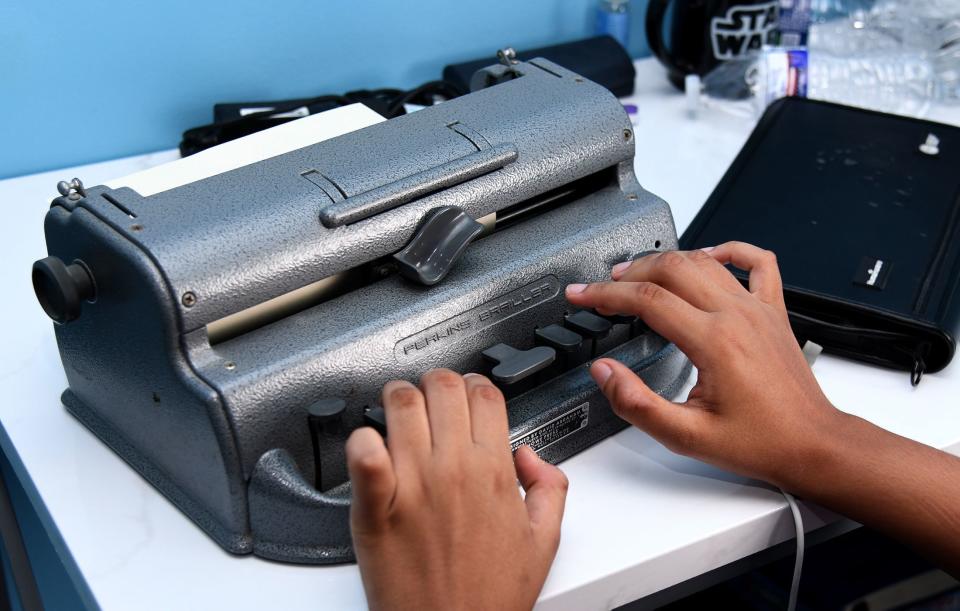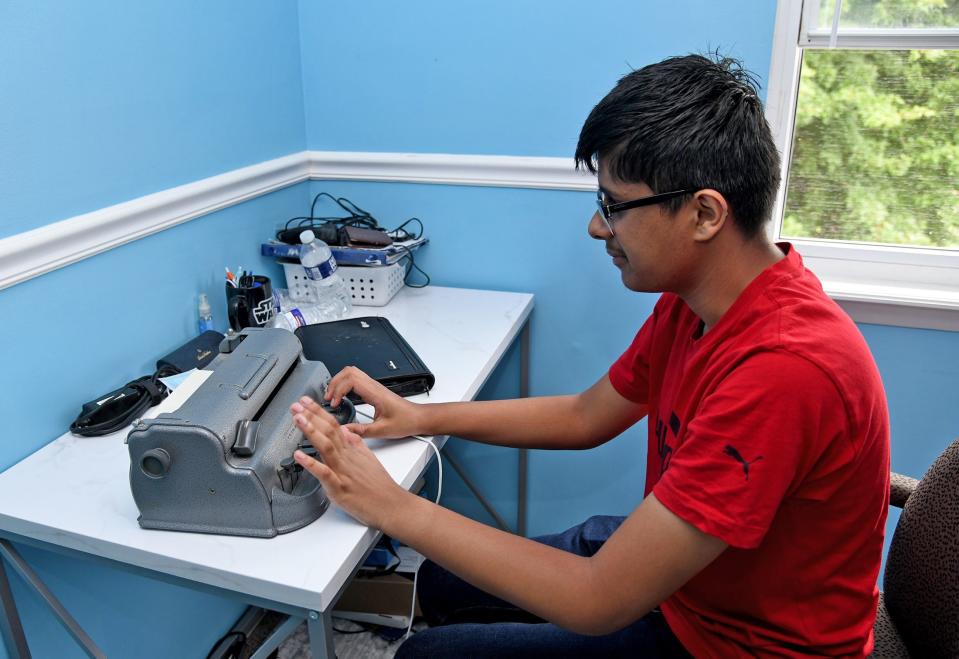‘Don’t focus on winning’: Baltimore County student competes in national Braille competition for fifth time
Baltimore County high school student Sujan Dhakal isn’t shy when talking about his experiences competing in Braille literacy competitions over the past decade.
Earlier this year, the Perry Hall senior at Eastern Technical High School competed in the regional Maryland Braille Challenge. For some competitors, the challenge is a chance for them to test their skills in Braille, a tactile writing system designed for the visually impaired. Others aim to win and get prizes in cash and technology.
More veteran participants, like Sujan, compete to forge friendships. Whatever the reasons, the purpose of the challenge is to provide a competitive and social outlet for a population that often lacks both.
“It’s a great event for networking,” said Jackie Otwell, Maryland Braille Challenge coordinator. “Often our students who are blind or visually impaired are isolated. They may be the only student in their school. They may be the only student in their county. And at this event, the students get to come together and talk and commiserate.”
The Maryland Braille Challenge, now in its 13th year, is hosted annually by the Maryland School for the Blind and the Maryland State Department of Education. Students get tested on reading comprehension, spelling, chart and graph reading, proofreading, speed and accuracy.
“I don’t want to sound arrogant, but regionals was a cakewalk. Because in the last 11 years that I’ve done the Braille challenge, only once have I not placed first or second in regionals,” said Sujan, 17, who is visually impaired.
Only the top 10 scoring students from each of five competitive categories move on to the national round, which consists of two days of competition, camaraderie and fun, Otwell said.
More than 800 students, from first to 12th grade, took part in regional competitions from January through March throughout the U.S., Canada and the United Kingdom in hopes of qualifying for the top 50 spots at nationals.
Sujan was the only area student to qualify for nationals this year. He placed first at regionals and scored in the top 10 among the participants in the varsity division for his age group. This earned him a ticket to the National Braille Challenge, which was held at the University of Southern California in Los Angeles in June.
“My dad is always ecstatic when I make it. He’s more excited than I am because I see the competition less as an actual competition, more like a venue to actually talk to people and make more bad jokes,” he said. “The environment there is really great for talking to people, even if you don’t really want to.”
The Braille challenges are put on and sponsored by the Braille Institute of America and are the only academic competitions in the U.S. and Canada for blind or visually impaired students.
The organization developed the Braille Challenge in 2000 to motivate students to practice and hone their Braille literacy skills.
The events switched to virtual when the COVID-19 pandemic hit, Otwell said, but the national competition returned to in-person this year. Otwell, who was invited to be an emcee at this year’s award ceremony, said the National Braille Challenge is like regional competitions but 10 times more intense.
“I think it reenergized everyone to get back together and reinvigorate everybody’s love and enthusiasm for Braille,” Otwell said. “It’s a true team experience, and it takes a village.”
This was Sujan’s fifth appearance on the national stage. Unfortunately, he didn’t place again this year, and final results usually get mailed out one or two months after the contest, Sujan said.
He was aiming for third at his level this year because his competitors are “really good,” he said. Nathan Deeds, of Williamsburg, Iowa, took home first, Charlie Bethay, of Prairie Village, Kansas, received second and Julia LaGrand, of Grand Rapids, Michigan, got third.
“We had a whole lineup prepared on who’d get first, second or third. We always do that,” he said. “We agreed the first two places were taken already. And it was basically the rest of us fighting for third.”
However, Sujan said, after years of competing, he has realized that winning is not the purpose of these challenges but rather it’s the camaraderie, allowing him to just enjoy the events, he said.
“I’ll say this to everybody who really wants to win. You’re going to want to win this like it’s your life. But in the end, the main part of the competition is talking to people, interacting with them,” he said. “So if you win, great. If you don’t, then that’s OK as well. Don’t focus on winning and focus more on the people there.”
This article is part of our Newsmaker series, which profiles notable people in the Baltimore region who are having an impact in our diverse communities. If you’d like to suggest someone who should be profiled, please send their name and a short description of what they are doing to make a difference to: Diversity, Equity, and Inclusion Editor Kamau High at khigh@baltsun.com.



